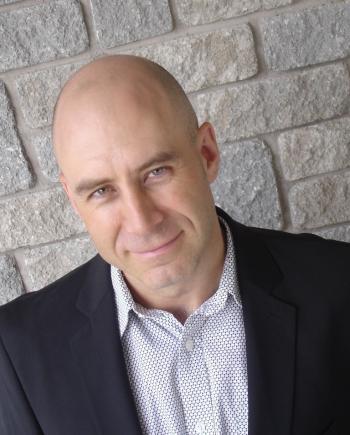 The images are horrific, and today all of us are thinking about the lives lost and lives impacted by nature’s fury… and holding our loved ones a little closer.
The images are horrific, and today all of us are thinking about the lives lost and lives impacted by nature’s fury… and holding our loved ones a little closer.
On Monday, dozens of devastating tornadoes ripped through the midwest. In Oklahoma in particular, the storms caused massive damage and loss of life.
When tragedy strikes a community, businesses often feel a responsibility to help.
But there is a fine line between altruistically doing good and opportunistically capitalizing on pain and suffering.
Smart brands simply do the right thing.
They give. They help those in need first. They don’t look for credit. They say “how can we help?”
Weak businesses can’t help themselves.
They give conditionally. They help themselves first. They seek out credit and remind everyone of what they did. They say “look at us!”
Bob Geldof didn’t organize Band Aid’s “Do They Know It’s Christmas” in order to make his own band more famous, make himself rich, and earn himself a knighthood. He did it because he was genuinely moved when he saw a TV news report about starving children in Ethiopia, and he felt that he and his colleagues in rock ‘n’ roll could do something about it.
CAUSE MARKETING LESSONS FROM SIR BOB GELDOF
* Only involve your brand in causes that you are personally passionate about. Bob Geldof was genuinely moved, so he acted on his passion.
* Find out what the community needs and act accordingly. Geldof raised money, because that is what made an immediate difference. Every crisis is different. In post-Katrina New Orleans, things like ice and drinking water were in short supply. Don’t give people things they don’t need just because it suits your business… it just makes things more difficult.
* Move quickly, when the need is most dire. Bob Geldof saw the BBC report on African famine in late October 1984, and within weeks he had organized a recording session with the biggest stars in UK music. The song was recorded and produced on November 25 and 26, and released on November 29, 1984 in order to reach the Christmas market to raise the most money possible in the fastest time.
* Involve your employees, friends, or colleagues. Turn your team into your community’s team. Bob Geldof brought together the people from his personal network, which happened to be the who’s-who of British rock music. Your friends and co-workers are equally valuable.
* Downplay your role. Simply show that you care, and people will notice that you care. Bob Geldof took a relatively small role in the Band Aid song, preferring to give key singing roles to more famous people like Simon Lebon of Duran Duran, Bono from U2, and George Michael of Wham!.
Spare a thought, donation, prayer, or helping hand to those struggling to rebuild their lives after this disaster.
– Steve Jones
Steve has spent 29 years in the music business. Presently he oversees programming on 80 Canadian radio stations in almost every format as VP/Programming for Newcap Radio, based in Halifax. Steve previously programmed WMKK/Boston, K-Rock/Edmonton, managed a radio network in the Caribbean, and helped create winning radio in markets of all sizes across Canada. In addition to his role as Newcap Radio’s VP/Programming, Steve Jones is the author of Brand Like A Rock Star: Lessons From Rock ‘n’ Roll To Make Your Business Rich and Famous. The book helps businesses build powerful brands by putting the lessons of rock legends into practice. He also maintains a popular blog at www.brandlikearockstar.com. He is also an in-demand speaker on branding, advertising, marketing, social media, and the creative process. You can connect with Steve on Twitter at @rockstarbrands.
(Oklahoma City tornado picture from www.cnn.com)


